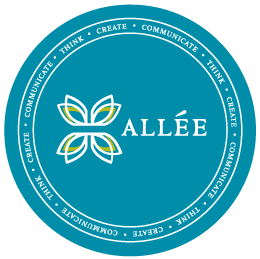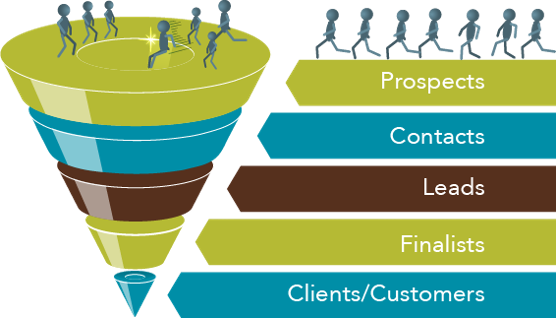The best way to plan for updated digital marketing strategies is to use what you know about your current marketing tactics and metrics. This information will guide your strategic communication planning whether for the next month, the next year or next quarter. Check out our recommendations for getting started, below.
What do you want to achieve?
Before crafting your marketing plan, think about your business goals; what is it that you want to achieve and how can marketing support those goals? For instance, are you looking for:
- Higher quality leads
- Increase in brand awareness, recognition or sentiment
- More website traffic
- Improved customer engagement
- Larger share of the market than your competition
While content marketing in the digital world does not largely equate to a 1:1 revenue driver, it is an important part of the relationship-building process. For many brands, the use of digital marketing will not directly impact sales. This is especially true for those in the professional services, B2B, nonprofit, manufacturing or association industries. Content and digital marketing can largely be used as top-of-funnel marketing–getting your audiences to trust you and learn about your expertise. If you are an e-commerce company, retail or consumer goods company, you may have an easier time correlating direct sales to your digital marketing efforts. Doing it all with perfection is possible with expert guidance and assistance and with knowledge about marketing resources.
Nonetheless, digital marketing is a component worthy of planning in any marketing strategy. Consider your overall goals before jumping in and set tactics to match those goals.
Use marketing metrics dashboards
Set yourself up for success by putting together marketing metrics dashboards for the year to make it easy to input the data each month without having to re-create the wheel. Set up dashboards that can track digital metrics for:
- Email marketing
- Websites
- Social media
Pull stats each month and analyze to get a sense of what is working, where your audience is, what types of content have high engagement, where traffic is coming from, etc. Our free marketing templates page is a good place to start or check out the sample templates in each of these categories below.
Email marketing metrics dashboard
Website traffic dashboard
Social media metrics dashboard
Basic digital marketing metrics definitions
It’s not just your social media metrics that matter. ‘Likes’ to your Facebook page and Instagram accounts are vanity metrics that don’t mean much. Dig deeper into your digital marketing metrics; how can you track them back to business and brand reach?
Start with these six digital marketing metrics and then dig into other metrics that will be helpful as you plan.
Bounce rate
Percentage of users who land on a page on your website and leave without clicking on anything or navigating to any other pages on your site.
Click through rate (CTR)
The number of clicks your content receives divided by the number of times it is shown (formula = clicks/impressions).
Conversion rate
Percentage of people who complete an action such as filling out a form, making a purchase or registering for an event.
Engagement rate
The amount of interaction (likes, shares, comments, retweets) a piece of content on a social media channel receives.
Reach
The actual number of people that have been exposed to content (vs. impressions where there were opportunities to see the content regardless of whether they did or not).
Unique visitor
A single person who visits a website (as compared to total site visits). A single person could visit a site 50 times which means the site has 1 unique visitor but 50 site visits (by the same person each time).
It’s most helpful when you can speak to top results and use the marketing metrics dashboards that you set up ahead of time to make inferences about your digital marketing success. You should know the answers to things like
- % of website visits increase over last month, quarter, year
- % of new leads generated from specific digital channels (compared to specific time periods)
- % increase in traffic/leads/sales for organic social, video, paid digital, email, etc.
- Top performing content (by topic, channel)
- Top performing channel (by lead, reach)
Assess your buyer personas and paths-to-purchase
It’s all about your audience and if you’re paying attention, they’ll show you where (and how) they like to receive their information. While our goal is to move our customers down the sales funnel, we first must understand where they are on their journey.
Personas and what we know about the digestion of content is important. Think about where you can get data from your target audiences such as
- Where they live
- How they get their information
- What they struggle with (pain points)
- How long it takes them to make a decision to buy (path-to-purchase)
- Who they trust for information
In a down economy, your focus may also shift to the economic buyer–the person with the most say in spend. Because of this, agile personas are key during times of unrest, recessions, pandemics or major shifts in business. Annual review of your target audiences and personas is critical to developing successful digital marketing strategies.
Pandemic considerations
Yes, still. Businesses continue to work through implications of the COVID-19 pandemic and will be changing strategies and modes of communication, likely, for years to come. The way consumers interact online has changed. As you develop ongoing marketing strategies, consider new ways you can communicate your brand’s message.
Be accessible. Engage. Monitor. Answer. Listen harder. We are seeing longer sales cycles and our audiences are looking for valuable, educational information from brands of all kinds. Focus on helping first.
Document your marketing plan
Typically, when I present on topics of marketing, I always ask the question, “Who here in the room has a documented marketing plan?” and every time I do, maybe half of the room raises a hand (and that’s on a good day). In fact, only 46% of B2B marketers have a documented content marketing plan. And it’s not just those in the B2B space; on the whole, there is a larger percentage of those who do not have documented marketing plans than those who do.
Be different. Document your plan.
Think of your marketing plan in 12-month chunks of time. Remain fluid in your planning and create documentation that supports all phases of your audience’s journey—discovery, awareness and decision. Use what you’ve pulled from above in your plan and outline how you will define success.
At minimum, your marketing plan should include:
- Overview
- Key messaging
- Goals
- Target audiences and persons
- Competitive analysis
- Distribution channels and frequency
- Budget (here is a great starting point to marketing budget planning)
- KPIs/ROI and measurement
- Timeline
- Supporting documents
By closing out the year with metrics and documentation on what worked, what didn’t and what’s on your wish list for the future, you put your company in a better position for growth. Documenting a marketing plan can also help you determine additional resources that may be needed or how to structure your marketing team going forward.
How can we help?
This is all just the tip of the iceberg. We want to give you a deep dive on all of the above and set you up for successful marketing. Contact us to learn about our digital marketing trainings and workshop, or to work together on a customized project to fit your marketing needs.








